

News
On September 20, the 2024 Confidential Computing Industry and Ecosystem Development Forum was held during HUAWEI CONNECT 2024, attracting over 150 leaders and experts from the Global Computing Consortium's (GCC's) Confidential Computing Special Interest Group (CC SIG), financial institutions, carriers, and research institutes.
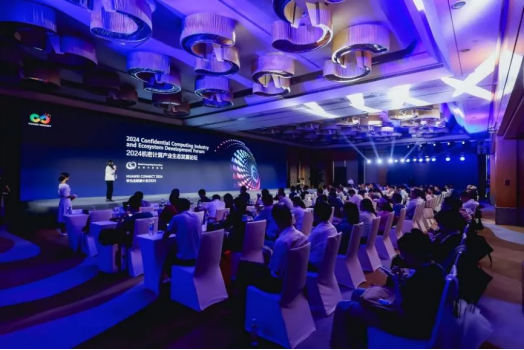
At the forum, Peng Peng, Secretary-General of the GCC, stated that the GCC is China's first international non-profit organization targeting the global computing sector, with "new architecture consensus, new standard construction, new ecosystem development" as its core services. With global digitalization highlighting the importance of dynamic data security, he expressed hope that the CC SIG will become a key international platform for developing and promoting high-quality standards worldwide.
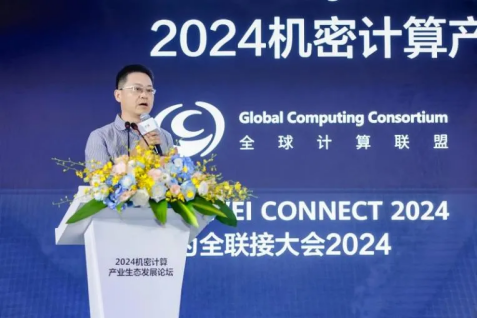
Peng Peng, Secretary-General of the GCC, speaking at the forum
Academician Feng Dengguo, Chair of the CC SIG's Expert Committee, spoke via video to congratulate the establishment of the CC SIG and the convening of its first general meeting. He noted that the group should serve as an important communication platform for enterprises, universities, research institutes, and users, and remain committed to driving high-quality development and broader adoption of confidential computing by issuing white papers and conducting workshops.
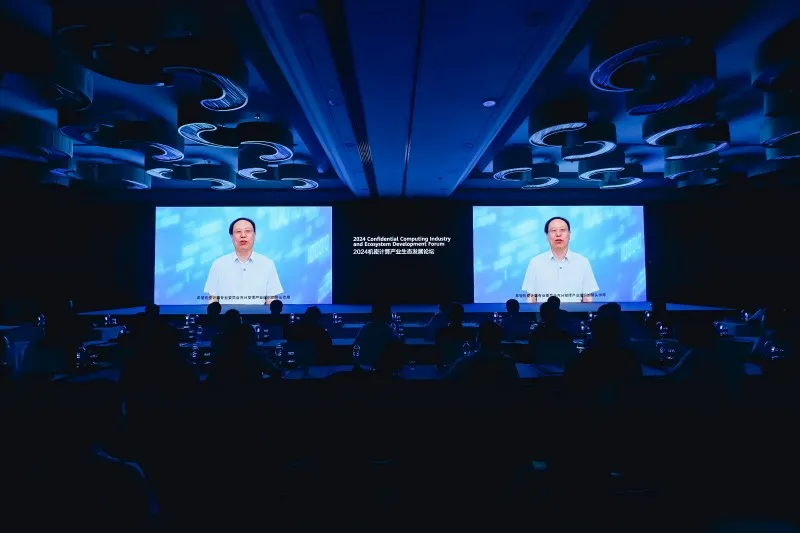
Academician Feng Dengguo, Chair of the CC SIG's Expert Committee, speaking via video
Yao Xiangzhen, Director of the Cyber Security Research Center of China Electronics Standardization Institute (CESI), introduced the history, main tasks, and organizational structure of the CC SIG. He emphasized the group's vision to unite diverse stakeholders to define the evolution path of confidential computing technologies, promote their implementation and application, and drive sustainable industry growth. This will enable confidential computing to better support trusted data circulation and value mining and inject new energy into the digital economy.
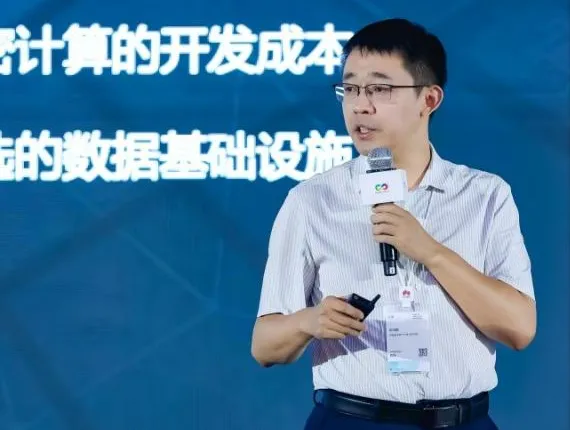
Yao Xiangzhen, Director of CESI's Cyber Security Research Center
Qin Yu, Deputy Director of the Trusted Computing and Information Assurance Laboratory (TCA Lab) at the Chinese Academy of Sciences' Institute of Software (ISCAS), delivered a keynote speech titled "Confidential Computing: Thoughts and Insights", detailing the development history, research focuses, and future prospects of confidential computing. He noted that confidential computing is a paradigm that protects data in use, particularly in multi-party scenarios, through hardware-level system isolation. Confidential computing is complementary to trusted and privacy computing and stands out as the most practical technology for data usage protection. The future development of confidential computing will prioritize creating an elastic platform and trusted execution environment (TEE), enhancing China's national cyber security and enterprise privacy compliance, advancing confidential AI, and building an independent, resilient ecosystem.
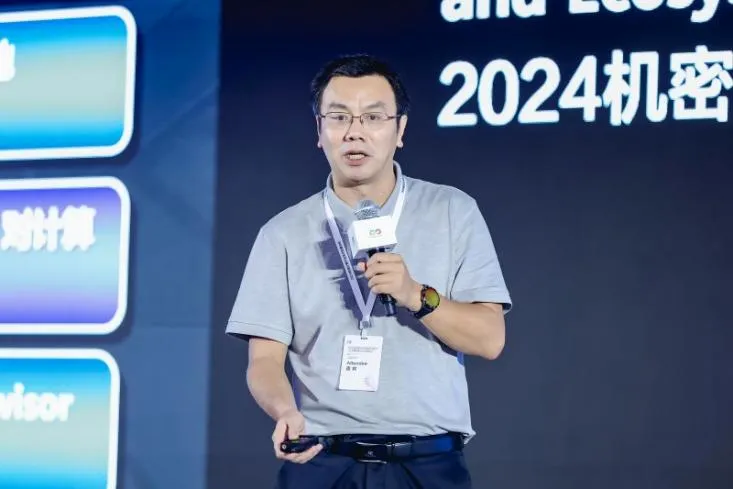
Qin Yu, Deputy Director of ISCAS's TCA Lab, delivering a keynote speech
Liu Linchao, Director of Huawei Kunpeng Computing Product Development Unit, delivered a keynote speech titled "Kunpeng Confidential Computing Lays a Solid Foundation for Security". Liu highlighted the latest advancements of the Kunpeng confidential computing kit in underpinning secure, high-performance, and adaptable computing for cryptography application, financial risk control, telecom fraud prevention, multi-party computation (MPC), and AI foundation model protection.
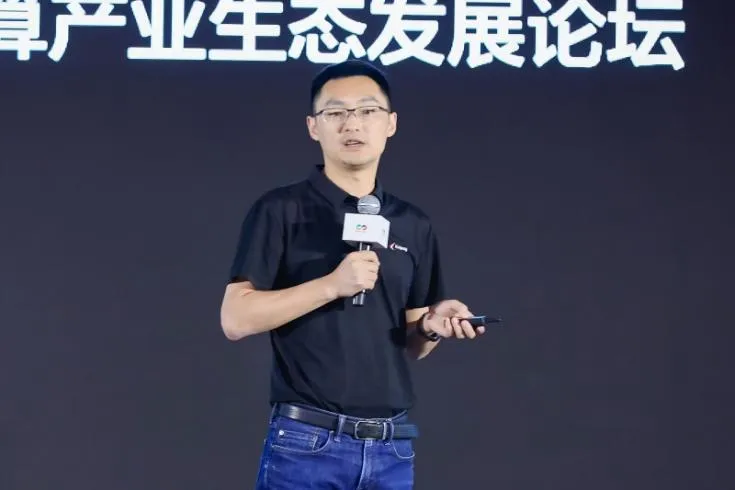
Liu Linchao, Director of Huawei Kunpeng Computing Product Development Unit, delivering a keynote speech
Li Bowen, Director of the Lab Center of National Financial Technology Certification Center (Beijing) (NFTC), delivered a keynote on "Building a Financial Application Assessment System for Confidential Computing". Li detailed the applications of confidential computing in the financial sector, including banking, securities, insurance, and Internet finance, and proposed ideas for developing an assessment system for these applications.
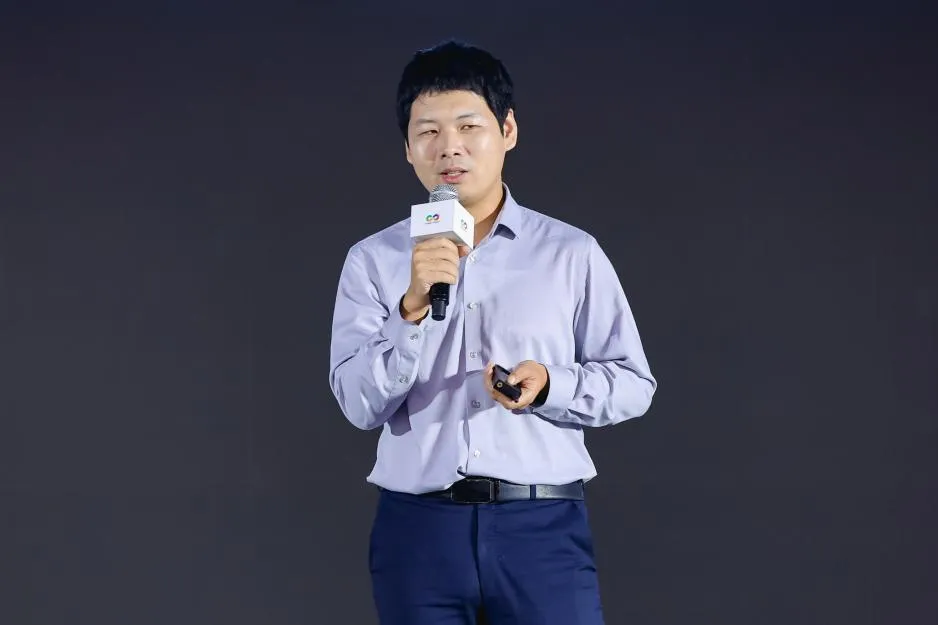
Li Bowen, Director of the NFTC Lab Center, delivering a keynote
Zhang Liang, Director of Elastic Computing at eSurfing Cloud's Cloud Network Product Business Unit, delivered a keynote titled "eSurfing Cloud's Breakthroughs in Trusted and Confidential Computing". He outlined the company's plan to integrate existing data security technologies, trusted computing, and confidential computing into its elastic computing product line. He emphasized the plan's feasibility in AI-driven computing and its potential as a benchmark for other industries.
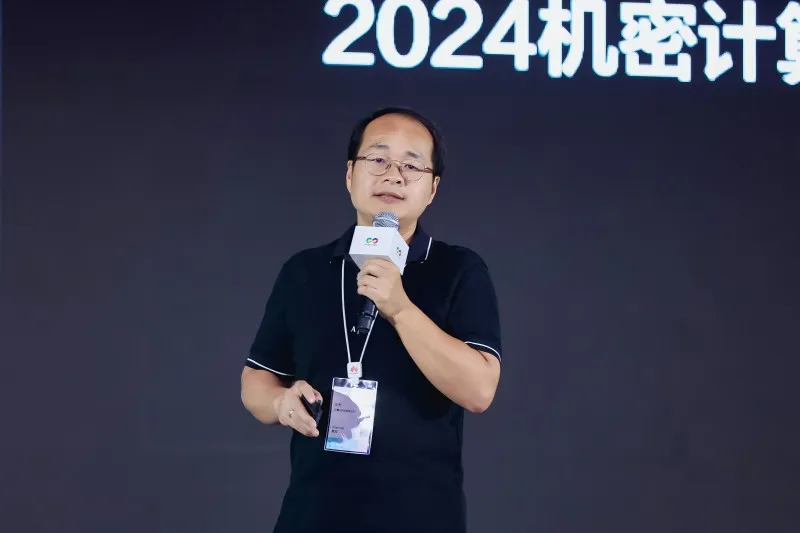
Zhang Liang, Director of Elastic Computing at eSurfing Cloud's Cloud Network Product Business Unit, delivering a keynote
Huang Xizhi, Head of Security R&D Department and Chief Cryptography Expert at TsingJiao Information Science, delivered a keynote titled "Integration and Application of Privacy Protection Computing Technologies". He presented various technical roadmaps for privacy protection computing and discussed solutions and applications that integrate cryptography with confidential computing using TEE and MPC.
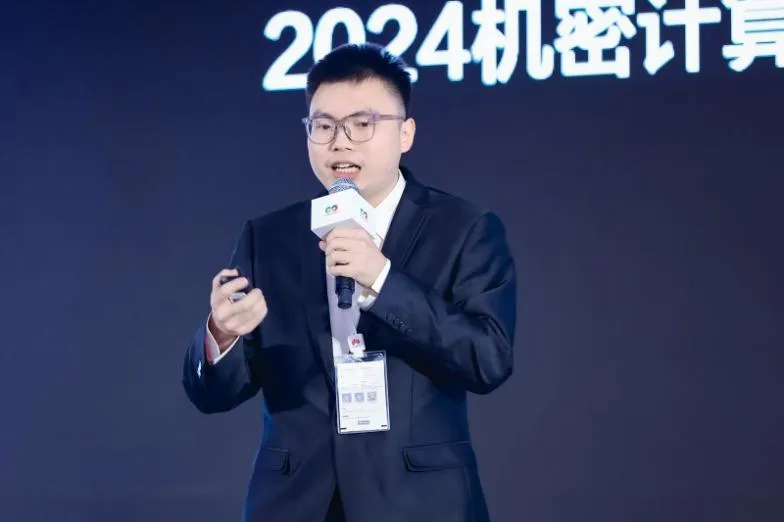
Huang Xizhi, Head of Security R&D Department and Chief Cryptography Expert at TsingJiao Information Science, delivering a keynote
The panel discussion at the forum, moderated by Jin Yier, Chief Scientist of Trusted Computing at Huawei, brought together Wang Xuemin, Vice President of Standardization & Industry Development at Huawei; Wang Junchao, Director of Standards and Security at Arm China; Liu Hongyun, Chief Engineer of the Chief Engineer Group at China's National Research Center for Information Technology Security; Zhang Yinqian, professor of Southern University of Science and Technology; and Wang Wubing, Director of Privacy Computing at DBAPPSecurity. They reviewed their experiences with confidential computing, and discussed approaches to tackle the challenges hindering its adoption across industries, emphasizing the importance of formulating standards, establishing assessment systems, and creating an ecosystem.
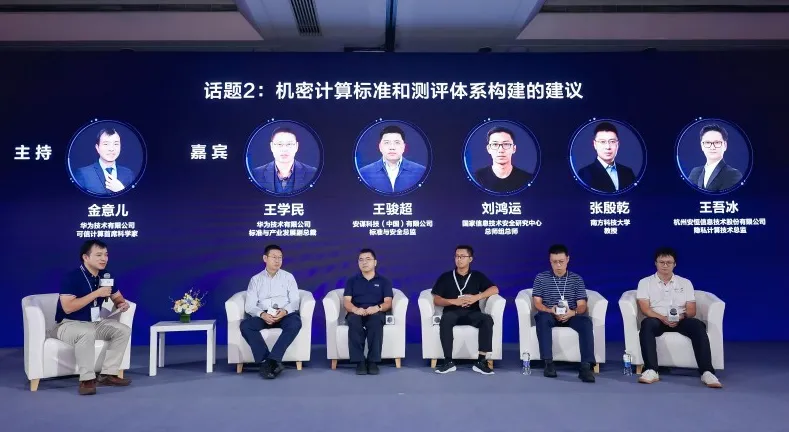
The forum was moderated and wrapped up by Wang Huili, Technical Director of the CESI.
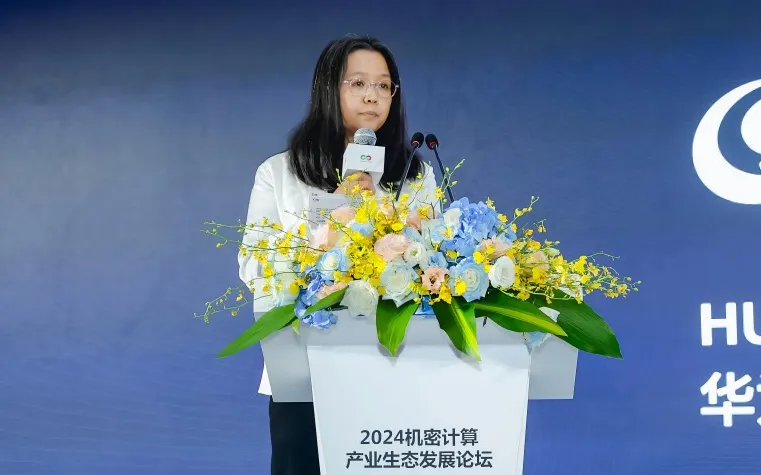
Wang Huili, Technical Director of the CESI, making closing remarks
In her closing remarks, Wang noted that confidential computing will remain a long-standing hot topic. The CC SIG aims to facilitate communication and promote technological and industry development, and plans to release a white paper on confidential computing by the end of 2024. She expressed her hope for future gatherings to share innovative practices and work together on a data security assurance system in China.